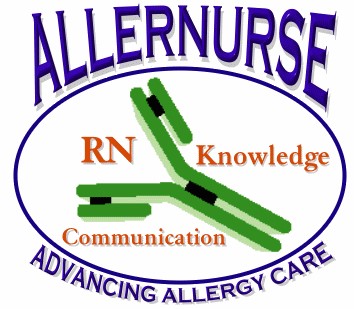Allergy patients may have a myriad of complaints. The typical symptoms that most people equate with having allergies are runny nose, itchy eyes, sneezing, hives, and wheezing. However, since allergy may affect any body system many other symptoms may be related to allergy. Certainly, if you sneeze and wheeze after brief exposures to cats then you are likely to suspect that you are allergic. Also, if you break out in hives and have your eyes swell shut after a bee sting then you will likely have no doubt that you are allergic.Unfortunately, not all allergy manifestations are so readily identified. You might not consider that you have allergies if you are tired all the time and have intermittent migraine headaches. You could have problems sleeping, have joint aches, and frequent stomach upsets and still is suffering with allergies.
Chronic symptoms that have no known cause may be allergic in nature. However, anyone suffering with symptoms of this type should have an evaluation to rule out more serious ailments. A healthcare provider does not want to find themselves treating a patient for what they think is a food allergy only to find out that the patient has stomach cancer.
For the most part, inhaled allergens cause respiratory tract symptoms. Although, there are exceptions to all rules. A good example of this occurred in the allergy department I formally managed. A forty-year-old woman came for allergy evaluation after she had began having “hay fever” symptoms in the fall. A thorough history revealed that she had been suffering with migraine headaches every August and September for over ten years. She and her family doctor never considered that she might have allergy problems until she began having itchy, watery eyes, and sneezing. She was tested and found to be highly allergic to ragweed (Class VI on an In Vitro test). She also had several other milder allergies. She was started on immunotherapy and not only did her rhinitis symptoms improve, but she quit having the migraines. Last reported, she has not had a “fall headache” as she called it for many years. These stories are not common, but they do happen.
A list of symptoms reportedly tied to Hidden Food Allergies is listed below for your consideration:
| Recurrent Colds Short Attention Span Sinus Emotional Problems Bowel Difficulty Urinary Problems Ear Problems Dark Circles Under Eyes | Leg Aches Fatigue Stomach Ache Headache Hyperactivity Depression Mouth Breathing Poor School Performance | Sleep Problems Irritability Sluggishness Hard to Live With Chronic Cough Excessive Sweating Pale in Color Balance Problems/Dizziness |
Physicians who rarely diagnose food allergy claim that it only affects about 5 to 10 percent of the general population. Those who regularly see people for these problems estimate that up to 70 percent of the allergic population may be affected.
To deny that allergies can affect any body part is hard to do, if you have ever witnessed a patient in a full anaphylactic reaction.
If you have any of these symptoms, discuss them with your physician. If the physician determines you have allergies, read all the information you can so you can come to a better understanding of the problem.
